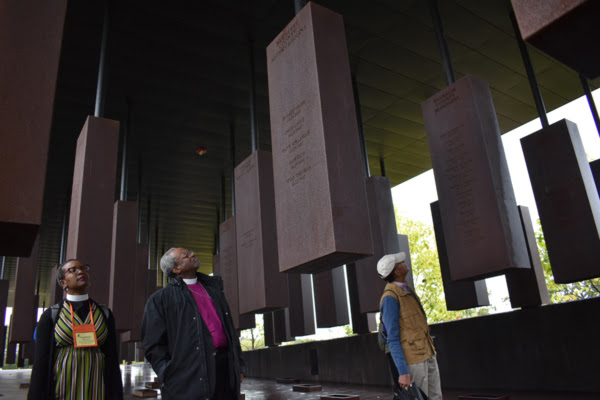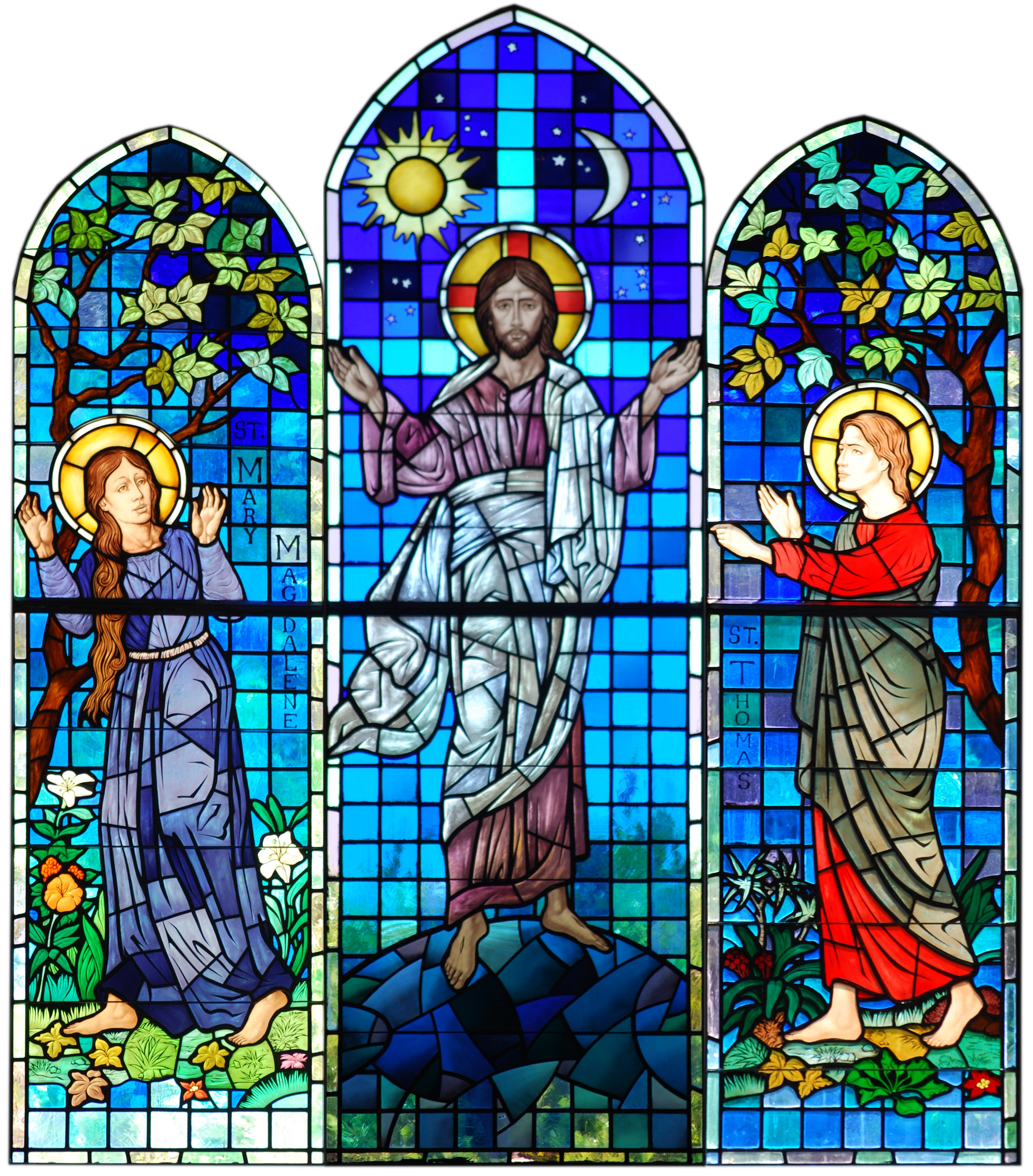| Eight Episcopal bishops, including the Rt. Rev. Katharine Jefferts Schori, the former presiding bishop, are in Alabama this week on a racial justice pilgrimage to civil rights landmarks, museums and memorials in Montgomery and Selma.
The bishops began developing the pilgrimage after participating in a Sacred Ground discussion circle that met on Zoom and concluded in mid-2021. Sacred Ground is The Episcopal Church’s 10-part, video-based discussion series that confronts the historical roots of systemic racism and examines how that history still shapes American institutions and social interactions today.

Recently retired Upper South Carolina Bishop Andrew Waldo, an Alabama native, speaks to a group of bishops on the second day of a racial justice pilgrimage to civil rights landmarks, museums and memorials in Montgomery and Selma. Photo: Diocese of Northern Indiana
Bishop Andrew Waldo, the recently retired bishop of Upper South Carolina, grew up in Montgomery and helped sketch the pilgrimage’s itinerary. Other participants include Virginia Assistant Bishop Jennifer Brooke-Davidson, Delaware Bishop Kevin Brown, Alabama Bishop Glenda Curry, Central New York Bishop DeDe Duncan-Probe, Southern Virginia Bishop Susan Haynes and Northern Indiana Bishop Douglas Sparks.
The bishops arrived in Alabama on Feb. 8 and were scheduled to spend Feb. 9 visiting sites in Montgomery, including the Equal Justice Initiative’s Legacy Museum and National Memorial for Peace and Justice. They will conclude the day by meeting with Bryan Stevenson, the prominent death row and public interest attorney who founded Equal Justice Initiative.
Executive Council, The Episcopal Church governing body, embarked on a similar pilgrimage during its October 2019 meeting in Montgomery. The city, where Martin Luther King Jr. began his ministry as a Baptist pastor, has been a frequent destination for Episcopal pilgrimages, particularly since 2018, when the Equal Justice Institute opened its museum and memorial.
Other Montgomery stops on the bishops’ schedule include the Freedom Rides Museum, the Civil Rights Memorial Center, a Rosa Parks landmark, the state Capitol and Dexter Avenue Baptist Church, where King was pastor.

Presiding Bishop Michael Curry in Octrober 2019 looks up at one of the columns hanging at the National Memorial for Peace and Justice in Montgomery, Alabama. The steel columns memorialize the victims from all American counties where at least one lynching occurred from 1877 to 1950. Photo: David Paulsen/Episcopal News Service
On Feb. 10, the group will stop first in Hayneville to visit a memorial honoring Jonathan Daniels. The Episcopal seminarian, who participated in the March 1965 demonstrations in Selma, was killed that August in Hayneville while shielding Black teenager Ruby Sales from a shotgun attack. The Episcopal Church remembers Daniels on his Aug. 14 feast day.
The bishops will spend most of the day in Selma, the city that in 1965 galvanized the civil rights movement’s final push to win passage of the federal Voting Rights Act. In addition to visits to historical sites, the bishops are scheduled to walk across the Edmund Pettus Bridge, where on March 7, 1965, Alabama state troopers unleashed their “Bloody Sunday” crackdown on civil rights demonstrators who were attempting to march from Selma to Montgomery.
“Central Alabama has been unable not to tell the truth about its story. It’s just writ large all over the place here,” Waldo told Episcopal News Service by phone from Montgomery. He was 7 in 1961 when his family moved to the city so his father could become rector of the Church of the Ascension. Now, decades later, he said the Sacred Ground curriculum allowed him and his fellow bishops “the freedom to speak of hard things” regarding the injustices of the past and present and to work toward racial healing.
“Certainly, it was reinforced by that curriculum that it is important for us to play roles in making sure that our work as God’s people is to let the truth be spoken and redemption come to be.”
The church launched Sacred Ground in 2019, and churchwide participation accelerated dramatically after the May 2020 killing of George Floyd. With racial justice issues moving to the forefront of public discourse, hundreds of dioceses and congregations signed up to form Sacred Ground circles.
Like many of those circles, the one formed by the bishops was all white – which is partly by design. The resource was developed primarily for white Episcopalians to learn about the varieties and extent of racism threaded throughout the history of the United States. People of color are welcome to participate but shouldn’t feel obligated to explain racism to their white neighbors.
Sacred Ground is built around an online curriculum of documentary films and readings that focus on Indigenous, Black, Latino, and Asian/Pacific American histories as they intersect with European American histories. Participants also examine examples of systemic racism in today’s America, such as mass incarceration and its disproportionate effect on people of color.
More than 2,000 discussion groups have now taken up the Sacred Ground curriculum with new circles continuing to form across the church.
“It was eye-opening for me,” Sparks told ENS after arriving in Montgomery on Feb. 8. “It was, for me, the first time that I really had an opportunity to take a serious look at the history of race in this land.” He was approaching the pilgrimage to Alabama as “a time of prayerful reflection, remembrance and lament.” |

 The 7th Sunday after the Epiphany
The 7th Sunday after the Epiphany